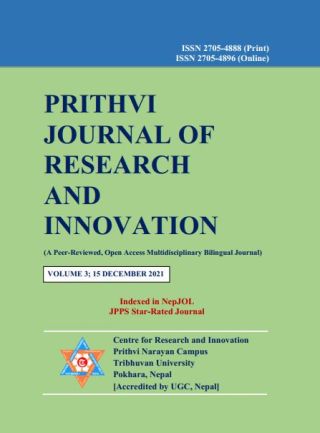Corporate Efficiency in the Nepali Hotel Industry
DOI:
https://doi.org/10.3126/pjri.v3i1.41636Keywords:
Efficiency, leverage, size, profitability, growthAbstract
Financial sources and corporate investment are the key components for business operation and corporate activities focus on to increase efficiency. The study has attempted to analyze the impact of leverage and firm-specific variables on efficiency of Nepali hotel industry. In this study, efficiency is the dependent variables whereas the independent variables are leverage, size, tangibility and growth. The descriptive and causal comparative research design has been used to examine and analyze the impact on efficiency. The data were collected from annual reports of respective hotels. The study was based on 18 observations and the sample comprises of three hotels, which were purposively selected. Descriptive statistics, correlation and regression analysis have been employed to assess the relationship among the variables. The result showed that the hotels having high leverage have higher efficiency. This study concluded that size, leverage, growth and tangibility are the major factors to determine and increase the corporate efficiency. The findings of the study suggested that there are practical implications to take financing, investment and operating decisions of service sectors like hotels of Nepal. The study has also aimed to support the increase in corporate efficiency.
Downloads
Downloads
Published
How to Cite
Issue
Section
License
Copyright (c) 2021 Centre for Research and Innovation (CRI), Prithvi Narayan Campus (TU)

This work is licensed under a Creative Commons Attribution-NonCommercial 4.0 International License.
© Centre for Research and Innovation (CRI), Prithvi Narayan Campus (TU)

